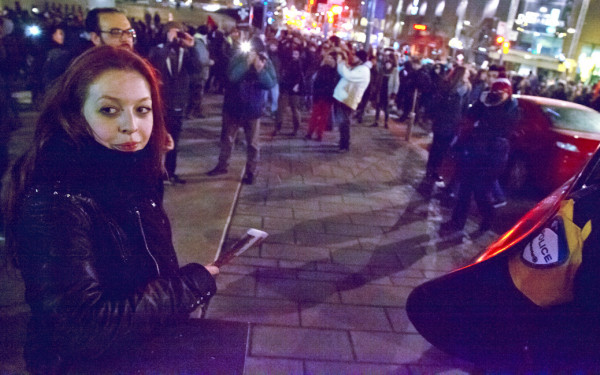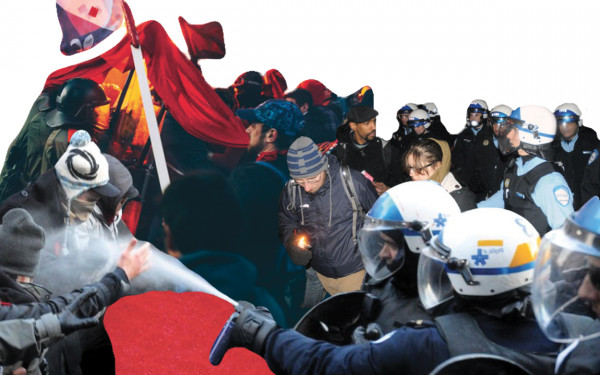Editorial: Free education is a right
March 22 marked the 10-year anniversary of the Maple Spring protests, which were characterized by an overwhelming number of students taking to the streets to protest tuition hikes that were proposed by former Quebec premier Jean Charest. Montreal students gathered in honour of said protests, but also with disappointment regarding the current state of their education.
Concordia saw a four-day-long occupation of the Hall building, with students setting up tents and sleeping in the mezzanine. The resilience these students showed proved their demands weren’t just talk, and the student body is more than ready to take action.
Considering the actions that took place last week, it is clear that students are frustrated. The simple fact that the student body is fighting for paid internships in 2022, after two years of a pandemic that has devastated most financially, is outrageous.
This is not the first time students have mobilized for this cause. Recent examples are the strikes held by communications students and journalism students in 2019. These strikes were in response to the provincial government’s budget not providing any funding for paid internships. How is it that students’ labour is still exploited?
Just because we do not yet have a diploma to go along with our internship applications does not mean our work is not worthy of financial compensation. Internships are incredibly demanding, and in cases where they are necessary for degree completion, compensation should not be a question. Currently, there are Concordia students obligated to do free labour in order to get their degrees. For example, the honours degree in public history requires you to do an internship, but there is no guarantee that it is paid. It seems like Concordia is directly participating in creating a system of exploitation.
Furthermore, the fact that there are students forced to choose between making enough money to afford basic needs or continuing their education shows that this is a class issue at its core. Not everyone has the luxury and privilege of doing unpaid labour and still affording food and housing. When a working class student is forced to do an unpaid internship, it is basically asking them to make this choice.
Tuition fees are also a factor that forces students to leave university, but this does not happen to everyone. Working class students are those who are forced to make these decisions.
Unpaid internships and the price of tuition are a systemic issue, and it shows that university education is classist, and cannot be accessed equally. For this reason, all students should rise in solidarity to support the fight for free education.
This fight is part of the class struggle, and the demands of this student movement are necessary. If education is a right, then it should be accessible to all.

.png)
_600_832_s.png)

_600_375_90_s_c1.JPG)


2_600_375_90_s_c1.jpg)